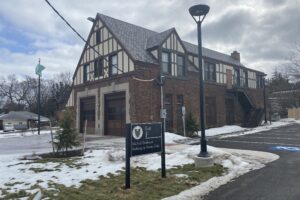
Salt City Coffee will be the vendor for Barb's Bistro in the McNeil Firehouse when it opens later this summer.

Having studied Finance & Business Analytics at Le Moyne College, I currently work as a Private Wealth Advisor at Goldman Sachs, where I advise wealthy individuals and their families, as well as select foundations and endowments. While at Madden, I was selected for a summer internship with Goldman Sachs, which led to being hired full-time as a financial analyst.”
Read the Latest Edition of New Heights: the Magazine of Le Moyne College

Le Moyne is committed to working with all members of the media to develop stories on a wide range of topics related to our programs, students, faculty and other areas of interest at the College.